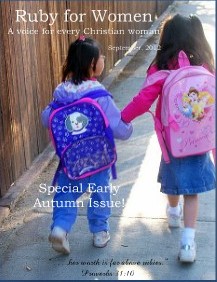Friday, May 29

We’ve been looking at friends…what is a BFF, what does friend mean, covenant friend gift, and what is hospitality. This is the last in the series. And you’re wondering what the heck It’s a Wonderful Life has to do with this post, right? Well, let’s see.
Jesus said, “I have called you friends.” (John 15:15) If we consider Jesus our friend, do we consider His friends to be our friends? Do we consider how we should treat His friends?
This may give us something to think about. A friend sent my husband an email with what I will loosely call a joke that went something like this: A man died and went to heaven.
When Peter greeted the man at the front gate, the man asked Peter, “What’s the difference between heaven and hell?”
Peter replied, “Come along with me. I’ll show you.”
So, Peter led him to the first room and opened the door. When the man stepped in, he immediately inhaled the great aroma of stew cooking. As he looked around, he saw emaciated and unhappy people standing around a pot of stew and others lying on the floor. The man noticed that all the people had a 36 inch spoon strapped to their arms and, when they dipped their spoon into the stew, they could not bring it to their mouths.
How sad, the man thought, that they are all inhaling the wonderful aroma of this stew and, yet, could not eat the stew because of the long spoon.
Peter then took the man to the next room. Opening the door, the man’s nose detected the same wonderful aroma of stew. However, all the people looked healthy and happy, yet, they all had a 36 inch spoon strapped to their arms.
Why, he wondered. Then he saw it. As each person came to the stew pot, they dipped their spoon into the stew…and fed each other!
Sobering thought, isn’t it?
Do you remember who was called the richest man in Bedford Falls in It’s A Wonderful Life? Nope, it wasn’t crotchety, old Mr. Potter. It was financially-challenged George Bailey.
While the bank examiners and the sheriff search for George, believing he has misappropriated the bank’s $8,000, he wishes he had never been born. After an encounter with Clarence, the second-class wingless angel, George experiences not having been born. After finally coming to the conclusion that he really does want to live, he dashes home.
In the meantime, Mary has spread the word of George’s dilemma with the bank examiners and dozens of townspeople come to his rescue, bringing all the spare change and dollars they can find. As George’s hero brother arrives and raises his glass to toast his big brother, Harry pronounces George the richest man in town.
Why? Because he had so many friends that he had helped.
At the end, George opens the book Clarence has left for him. George reads the inscription Clarence wrote, “Remember, George: no man is a failure who has friends.”
No matter how much money you make during the day, no matter how many deals you close, how many hamburgers you turn, how many diapers you change, how many letters you type, how many garbage cans you empty, how many stocks you trade, or how many patients you treat, at the end of the day, after brushing your teeth, putting on your jammies, pulling back those cozy covers, crawling into that comfy bed, and laying your tired ol’ head on that puffy pillow, the heavenly measurement of your success for the day is not how many zeros you added to your checkbook. It is this:
Did you bless someone today?
At day’s closing, ask yourself…
* Did I love someone?
* Did I encourage someone?
* Did I use my gifts to the Father’s satisfaction?
* Did I make a difference in someone’s life today?
* Did I give willingly and generously, even out of my lack, to meet another’s need?
Would someone call you the richest person in your town?
~~Blessings, Lynn~~






































